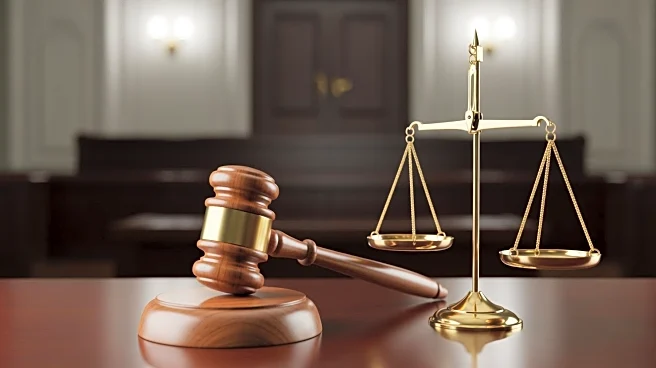What is the story about?
What's Happening?
A federal judge in Washington DC has issued a temporary restraining order against a Trump administration policy that would have detained immigrant children in adult facilities upon turning 18. Judge Rudolph Contreras ruled that this practice violates a 2021 court order mandating the release of these individuals to the least restrictive setting available. The ruling comes amid reports of ICE seeking to deport unaccompanied minors or pursue criminal cases against them and their sponsors. The administration's controversial immigration policies, including offering financial incentives for self-deportation, have faced criticism from advocacy groups.
Why It's Important?
The ruling is significant as it challenges the Trump administration's approach to immigration, particularly concerning minors. It underscores ongoing legal battles over immigration policies that affect vulnerable populations. The decision impacts how immigrant children are treated upon reaching adulthood, potentially altering their legal status and living conditions. Advocacy groups argue that the administration's policies pressure children to abandon legal claims, affecting their safety and future prospects. The ruling may influence broader immigration policy debates and the treatment of minors in the U.S. legal system.
What's Next?
The temporary restraining order halts the immediate transfer of immigrant children to adult detention centers, but further legal proceedings are expected. The Trump administration may seek to appeal the decision, leading to continued legal scrutiny of its immigration policies. Advocacy groups and legal representatives will likely continue to challenge policies perceived as harmful to immigrant children. The outcome of these legal battles could shape future immigration practices and influence public policy discussions on the treatment of minors and family separation.
Beyond the Headlines
The case highlights ethical and legal concerns regarding the treatment of immigrant children and the broader implications of immigration enforcement. It raises questions about the balance between national security and human rights, particularly for vulnerable populations. The situation reflects ongoing tensions in U.S. immigration policy, with potential long-term effects on societal attitudes towards immigrants and the legal framework governing their rights. The ruling may prompt discussions on the ethical responsibilities of government agencies in handling immigration cases.
















